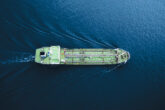July 17, 2014
Iran's Highly Enriched Bargaining Chip
As talks over Iran's disputed nuclear program enter the home stretch, Tehran has placed a major obstacle in the way of a diplomatic solution: insistence on an industrial-scale uranium enrichment program. On July 15 in Vienna, U.S. Secretary of State John Kerry and Iranian Foreign Minister Javad Zarif acknowledged that significant gaps remained between the parties. It now seems almost certain that negotiations will have to be extended for several weeks or months beyond the original July 20 deadline to conclude a comprehensive agreement. But putting extra time on the clock won't make much difference unless Iran is willing to make real concessions on the enrichment issue.
On July 7, in a major speech in Tehran, Iran's supreme leader, Ayatollah Ali Khamenei, the ultimate "decider" on the nuclear issue, declared that Iran has an "absolute need" of 190,000 "separative work units" (SWUs) for its nuclear program. This highly technical term represents a measure of the productive capacity of Iranian centrifuges, the cylindrical machines used to enrich uranium to fuel nuclear reactors -- or, potentially, nuclear bombs. Iran currently operates around 10,000 first-generation "IR-1" centrifuges, has installed another 8,000 IR-1s, and has installed but is not yet operating 1,000 more advanced "IR-2m" models. When the efficiency of these machines is calculated, Khamenei's stated goal for Iran's program would represent a ten- to twentyfold increase in Iran's current enrichment capacity.
A program that large could theoretically provide an indigenous supply of fuel for nuclear power plants, Tehran's stated intention. But it could also allow Iran to rapidly "break out," racing to produce bomb-grade uranium so quickly that the international community couldn't stop it.
More from CNAS
-
Russia in the Middle East with Jonathan Lord and Hanna Notte
One year after the October 7 attacks by Hamas, the crisis in the Middle East has grown more and more complex. With the region teetering on the brink of broader conflict, the B...
By Jonathan Lord, Hanna Notte, Andrea Kendall-Taylor & Jim Townsend
-
Biden Urges Israel Not to Attack Iran Nuclear Sites
Rachel Ziemba joins Bloomberg Television to discuss oil rising for a third day as traders watch for supply risks in the Middle East. Watch the full episode from Bloomberg Tel...
By Rachel Ziemba
-
The Fury of History
Even manifestly unpopular regimes do not end on their own. There has to be a trigger....
By Robert D. Kaplan
-
The Axis of Upheaval
The West has been too quick to dismiss the coordination among China, Iran, North Korea, and Russia....
By Andrea Kendall-Taylor & Richard Fontaine




